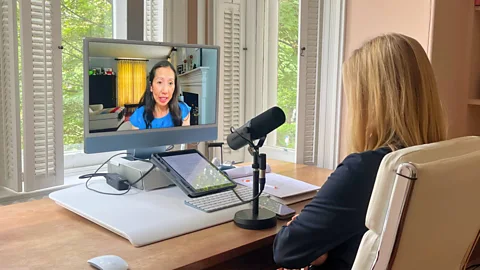American medicine has a trust problem
 BBC
BBCOver the last few weeks, I've found it difficult to ignore the headlines on the state of public health here in the US. Measles cases going up. Vaccination rates going down. Whooping cough is making a comeback. Thousands of government experts have been fired or resigned.
Amid these crises, the United States is undergoing a moment of intense distrust in public health – from multiple sides. There's the anti-vaccine community, who often distrust both America's health agencies and the big pharmaceutical companies. There are also the people who previously trusted health agencies, but are now sceptical of US President Donald Trump's istration and are particularly wary of Secretary of Health and Human Services Robert F Kennedy Jr.
What does it mean for health outcomes when so many people don't believe in the doctors, drug companies and the public agencies who are there to treat us? What can be done to bring trust back?
For answers, I reached out to Leana Wen, a physician and writer who formerly served as commissioner of the Baltimore City Health Department. During the darkest days of the Covid-19 pandemic, I often interviewed her live on BBC News from a makeshift studio in my basement to get her insights on how to stay safe.
Our conversation was a weighty one – but I found Wen's suggestions about how to approach concerned parents and vaccine sceptics to be particularly insightful at this moment. If you have a few minutes to spare, I really encourage you to watch or read a bit of our conversation below.
Below is an excerpt from our conversation, which has been edited for length and clarity.
Katty Kay: What are you worried about in of tangible health outcomes from this climate of mistrust? What worries you?
Leana Wen: What happens to vaccine-preventable diseases tops that list, because we're going to see those impacts really quickly. We are already seeing the single largest measles outbreak in the US in the last 30 years. Measles has been eliminated since 2000, but the US could lose its measles elimination status. We are seeing rising cases of things like whooping cough. If vaccination rates for other diseases fall, we could also see a return of rubella and chickenpox and even polio – things that would really have been unthinkable just several years ago.
But if you have such distrust over vaccines, that also means that there's a distrust of authority, of science, of the scientific method, of what counts as science and how one does research. And that could have negative impacts on many other aspects of health, too.
KK: Are there things that work for pulling people back into a position where they might have mistrusted medical authorities, but they can then say, 'OK, yes, I can trust authority. I can trust what science is telling me">window._taboola = window._taboola || []; _taboola.push({ mode: 'alternating-thumbnails-a', container: 'taboola-below-article', placement: 'Below Article', target_type: 'mix' });
